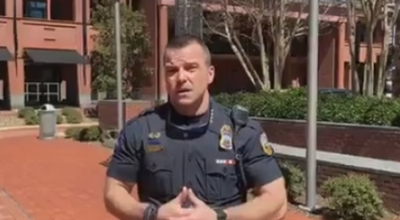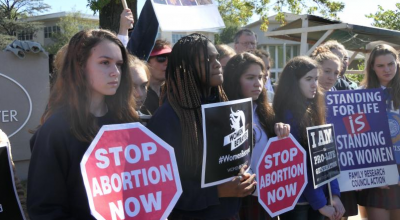
The extralegal activity of mayors and in the Flu 19 epidemic is in the same pattern as their other acts to reject their duty to protect the people in their rights, their commerce and their travels.
By David Tulis / NoogaRadio 92.7 FM
The Tennessee law on quarantine emergencies requires that in the case of an epidemic, state and local officials do everything in their power to maintain the “commerce and travel” of the people and that in containing an outbreak they do the “least inconvenience” to these rights.
Clearly, there is a right in commerce and there is a right in travel that pre-exists the constitution, and pre-exists the day’s outbreak.
My reporting on the right of travel is extensive in both the Tennessee sense and in the broad American sense. Much of what appears on this website is true generally for people in other states, as the 50 republics have a common English common law origin under the U.S. constitution. Most transportation statutes are 95 percent alike, from state to state.
But the “free people” of Tennessee, I suggest, should use my work in investigating reporting to maintain their liberties as belligerent claimants in person, to hearten others and give vigorous defense of Christendom, the liberty of service, the rights of the innocent.
The extralegal and peremptory powers being exercised my mayors go beyond what Gov. Bill Lee is willing to do. He is holding on to the idea that the people themselves are responsible for their own health and safety, and that a command economy approach is not likely to work and will has myriad evil side effects. His position appears to be that a ban on buying and selling — “commerce” — is as dangerous to people’s well-being as the microbe.
The economy is the lifeblood of human life, from the Greek word oikonomia, meaning “household management, thrift,” from oikonomos “manager, steward,” from oikos “house, abode, dwelling.”
The economy is about frugality, making things go far, inventing and serving others in buying and selling. Capital originates with the home and family, and creates new wealth by bringing goods and benefits to others.
Duties, rights of the people
Gov. Lee appears to respect this concept of capital creation as protected by Tennessee law touching on quarantine. The quarantine law is aimed at sick people, those proximate to them and upon those who come into the state or district from places with known sickness (New York, Atlanta). The tuberculosis statute gives a due process analysis about compulsory process to quarantine a sick person.
Shutting down all business, locking down healthy people in their houses, forbidding healthy Tennesseans from buying and selling has legal consequences for those parties who act outside the law. They are acting under color of law, in their own personal capacity.
The right to earn a living, the right to earn one’s bread, to provide one’s table, to provide food, heat, nourishment and security is God given and a constitutionally guaranteed inherent and unalienable right. Emergency situations do not suddenly prevent these duties and do not peremptorily block people from performing their duties, protected by their rights.
The combination of right and duty is upheld by Gov. Lee. In a constitutional republic such as Tennessee, people have private duties and are out and about pursuing their pleasures, without account to anybody. The government is there to regulate privileges and those parties responsible to the state for the exercise of these privileges (operating a motor vehicle, for example, or running a podiatry or accounting office).
The governor’s legal authority is through commerce, generally speaking. It operates on state privileges. In times of emergency, he is allowed to assume quasi-dictatorial executive powers of great magnitude.
Still, they are to be exercised lawfully and constitutionally. That is to say, with regard to the law and with regard to the constitution.
So, under his oath of office, the governor cannot fail to consider the rights of the people pursuant to their bill of rights, which provisions are aimed at him in limiting what he can do, whether in normal times or in times of great alarm and disturbance.
4 longstanding abuses in TN
The abuses that government imposes on the people occur in two main areas.
➤ One is the misuse of the shipping, trucking, hauling, moving, bussing and transportation law at Tenn. Code Ann. § Title 55, motor and other vehicles. This law, with judicial support, is applied to people not involved in the shipping, trucking, hauling, moving, bussing and transportation sector, and is part of a fraud by state government against the federal government.
➤ The second is the operation of general warrants in the arrest of members of vthe public, outlawed in the bill of rights.
➤ The grand jury is in the hands of county district attorneys, and have been neutered as the people’s power to halt abuses by the constabulary and courts.
➤ A fourth would be closed courts, where judges — from sessions court to courts of appeal — operate on whim, independently of the constitution, ignoring due process routinely, and denying the people redress of grievance. This reporting is developed largely thanks the work of reformer John Gentry of Goodlettsville (remonstrance).
These four cancers in the body politic are so great that it is fair to say that Tennessee is a failed state.
Noted barristers, people such as Jerry Summers, Lee Davis, Brian Hoss and Hank Hill, have not challenged the system of general warrants. This lack of movement in favor of liberty is remarkable, especially since the courts of appeal consistently uphold the meaning of the term “public offense,” which in practice is deconstructed to void and make of no effect the law in question, Tenn. Code Ann. § 40-7-103, grounds for arrest by officer without a warrant.
The term “public offense” is, for state convenience, redefined to mean “any crime.” I have given detailed coverage to this violent activity by state actors against the people.
We have a defense bar in Tennessee and Hamilton County. But it appears to matter little that people are routinely arrested on the spot when such a state action is illegal and violative of due process.
Ultra vires = outside the scope
My reporting over the last several years allows me to suggest the following sketch of how public servants in Tennessee act.
They will plainly ignore black-letter law, and feel themselves above it. I asked Brian Williams, East Ridge mayor, about the lack of a sunset provision in the city’s emergency decree as required by law.
He answered with a string of words. “Thank you for your email and your concern for this community during this difficult and unprecedented time. I, together with the other city leaders, are very concerned about the outbreak of COVID-19 in the nation, this state, and in this community. Please note the city is taking every effort to protect the health and safety of every citizen. The city will continue to evaluate and assess this matter and continue to take the necessary lawful actions as deemed warranted and authorized under applicable law.”
Not so much as a swatting motion to get rid of a pesky question. The officials — mayors, city councils, county commissions, chiefs of police such as David Roddy, Sheriff Jim Hammond — act by usage and custom, and ignore pleas, notices and queries about the limit of their authority.
They do not recognize limits, and are unaware of the question of limits because they rarely, if ever, think about the people in the framework of the state or federal constitutions. If they did consider the people in their rights, they would be circumspect. They would shrink from the slightest suggestion they were acting ultra vires (outside the scope of a law) or offending the constitution or violating their oaths.
But they take God lightly. They take their oaths lightly. They take the people’s rights lightly. By all appearances, they hold you in contempt. They hold Tennesseans and those visiting the state with disdain.
Sue cop as oppressor, defend self in traffic court: Transportation Administrative Notice
ttps://tntt.wpengine.com/2019/09/courts-cruel-game-against-the-citizenrys-rights-of-communication/

